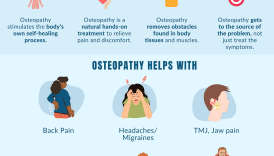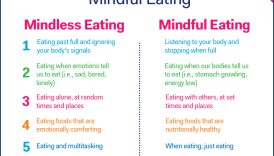Unlocking the Secrets to Healthy Living Habits
Introduction to Healthy Living Habits
Establishing a Balanced Routine
The journey towards healthy living begins with establishing a balanced routine. This involves harmonizing various aspects of life, such as nutrition, physical activity, mental health, and social interactions. For instance, integrating regular meal times, scheduled exercise, and downtime for self-care can create a predictable structure that encourages positive behaviors. Creating a balance may look like this:
- Unlocking the Secrets to Healthy Living Habits
- Introduction to Healthy Living Habits
- Establishing a Balanced Routine
- Importance of Healthy Habits
- Nutritional Wellness
- Balanced Diet Essentials
- Benefits of Hydration
- Physical Activity
- Exercise Recommendations
- Importance of Regular Movement
- Mental Health Practices
- Stress Management Techniques
- Importance of Self-Care
- Quality Sleep
- Importance of Sleep Hygiene
- Tips for Better Sleep
- Social Connections
- Impact of Relationships on Health
- Building a Support System
- Holistic Approaches
- Benefits of Mindfulness Practices
- Incorporating Natural Remedies
- Preventive Health Measures
- Importance of Regular Check-ups
- Vaccinations and Immunizations
- Healthy Aging
- Promoting Longevity
- Age-Appropriate Fitness
- Environmental Wellness
- Creating a Healthy Living Environment
- Sustainable Lifestyle Choices
- Morning Routine: Start each day with mindfulness or meditation.
- Nutrition: Plan meals to include a variety of fruits, vegetables, lean proteins, and whole grains.
- Physical Activity: Set aside at least 30 minutes for moderate exercise five days a week.
- Evening Wind Down: Limit screen time before bed and create a soothing pre-sleep ritual.
Importance of Healthy Habits
Healthy habits are the cornerstone of a fulfilling life. They not only enhance physical well-being but also play a significant role in mental and emotional health. Engaging in daily healthy practices can lead to:
- Increased energy levels
- Improved mood and mental clarity
- A stronger immune system
When individuals commit to healthier lifestyles, they often experience significant improvements in their overall quality of life. For example, a friend of mine turned to meal prepping and regular workouts, finding that not only did he shed excess weight, but he also felt more energetic and focused at work. Healthy living habits truly create a ripple effect, influencing every aspect of one’s life.
Nutritional Wellness
Balanced Diet Essentials
Transitioning to a focus on nutritional wellness is crucial to maintaining the healthy living habits established earlier. A balanced diet is essential for fueling the body and promoting optimal health. This involves incorporating a variety of food groups to ensure all nutritional needs are met. A well-rounded plate typically includes:
- Fruits and Vegetables: Aim for at least five servings a day for essential vitamins and minerals.
- Whole Grains: Choose brown rice, quinoa, and whole wheat bread over refined grains for added fiber.
- Protein Sources: Integrate lean meats, beans, and legumes to support muscle health.
- Healthy Fats: Incorporate avocados, nuts, and olive oil for heart health.
Benefits of Hydration
Now, let’s not forget hydration! Drinking enough water is one of the simplest yet most beneficial habits. Staying hydrated helps maintain energy levels and supports bodily functions. Personally, I’ve noticed a significant boost in my concentration when I keep my water bottle handy throughout the day. The benefits of hydration include:
- Enhanced physical performance: Crucial during workouts or long days.
- Better skin health: Proper hydration can lead to a glowing complexion.
- Optimal digestion: Drinking fluids aids in nutrient absorption.
Set a goal to drink at least eight 8-ounce glasses of water daily. When hydration becomes a priority, you’ll likely notice improved overall health and vitality.
Physical Activity
Exercise Recommendations
Building on the foundation of nutritional wellness, physical activity is a vital component of a healthy lifestyle. Regular exercise improves overall fitness and plays a significant role in maintaining physical and mental health. The current recommendation for adults is at least 150 minutes of moderate-intensity exercise each week, which can be broken down into manageable sessions. Here are some accessible exercise suggestions to get started:
- Walking: Aim for brisk 30-minute walks, five days a week.
- Strength Training: Incorporate bodyweight exercises or resistance bands twice a week.
- Flexibility: Try yoga or stretching routines to enhance mobility.
Importance of Regular Movement
The importance of regular movement cannot be overstated. Beyond weight management, staying active promotes better mood, improved sleep, and increased energy levels. A friend once shared how she felt sluggish due to a sedentary job until she began incorporating short movement breaks throughout the day. Key benefits of regular movement include:
- Enhanced cardiovascular health: Reduces risk of heart disease.
- Improved mental clarity: Boosts focus and productivity.
- Stronger muscles and bones: Decreases the chance of injuries.
The beauty of physical activity lies in its variety. Whether dancing, biking, or hiking, the key is to find enjoyable ways to move. So, lace up those sneakers and embrace an active lifestyle!
Mental Health Practices
Stress Management Techniques
Transitioning from the physical benefits of regular activity to the importance of mental health practices is essential for a holistic approach to wellness. Stress management techniques are invaluable in helping individuals cope with daily challenges. Finding effective ways to manage stress can significantly enhance overall quality of life. Some practical techniques include:
- Mindfulness and Meditation: Spending just a few minutes each day focusing on your breath can reduce anxiety.
- Deep Breathing Exercises: Try inhaling for a count of four, holding for four, and exhaling for four to calm your nervous system.
- Journaling: Writing down thoughts and feelings can create clarity and provide an emotional release.
Importance of Self-Care
Self-care is another vital aspect of mental health that often gets overlooked. Taking time to engage in activities that nurture the mind, body, and soul is crucial for maintaining balance. After a long week, I treat myself to a relaxing bath or a good book, allowing for a mental reset. Consider these self-care practices:
- Setting Boundaries: Learning to say no can protect your energy and prevent burnout.
- Engaging in Hobbies: Spend time doing what you love, whether it’s painting, gardening, or cooking.
- Taking Breaks: Short breaks throughout the day can boost productivity and prevent stress from building up.
Incorporating these mental health practices into daily life fosters resilience and contributes to a happier, healthier existence. Remember, prioritizing mental health is just as vital as caring for physical well-being.
Quality Sleep
Importance of Sleep Hygiene
After exploring the significance of mental health practices, we now turn our attention to the fundamental role of quality sleep in overall well-being. Sleep hygiene refers to the habits and practices that promote consistent and restorative sleep. Prioritizing good sleep hygiene can lead to improved mood, cognitive function, and physical health. Here’s why sleep hygiene is essential:
- Restorative Functions: Quality sleep allows the body to repair and regenerate, essential for good health.
- Mental Clarity: A well-rested mind enhances focus and memory, making daily tasks more manageable.
- Emotional Balance: Proper sleep is key for emotional resilience, reducing anxiety and irritability.
Tips for Better Sleep
To foster better sleep, consider implementing these practical tips:
- Consistent Schedule: Go to bed and wake up at the same time daily, even on weekends.
- Create a Sleep Sanctuary: Ensure your bedroom is dark, cool, and quiet to encourage relaxation.
- Limit Screens Before Bed: Reducing exposure to screens at least an hour before sleep can prevent disruptions to melatonin production.
I personally find that dimming the lights and reading a book before bed helps me wind down. Finding a nighttime routine that works for you is important. With these strategies, you’ll be on your way to achieving restful, restorative sleep, enhancing your overall health and vitality.
Social Connections
Impact of Relationships on Health
Following our discussion on the importance of quality sleep, it’s essential to recognize how social connections significantly influence overall health. Building and maintaining relationships can lead to numerous health benefits, including reduced stress and improved mental well-being. Strong social ties encourage positive behaviors and provide emotional support during challenging times. Research shows that individuals with robust social networks often experience:
- Lower levels of anxiety and depression: Feeling connected can create a sense of belonging.
- Enhanced physical health: Healthy relationships can motivate individuals to maintain healthy lifestyles.
- Increased longevity: Studies indicate that people with strong relationships tend to live longer, happier lives.
Building a Support System
To reap these benefits, consider developing a supportive social network. Engaging with friends, family, and community members can foster meaningful connections. Here are some effective ways to build your support system:
- Join Clubs or Groups: Engage in activities that interest you, from book clubs to sports teams.
- Reconnect with Old Friends: Take the initiative to reach out via social media or a simple call.
- Volunteer: Contributing your time to charitable causes can introduce you to like-minded individuals.
I remember joining a local running club, which not only improved my fitness but also helped me form lasting friendships. Embrace the power of social connections, and you’ll find them integral to your journey towards holistic health and happiness.
Holistic Approaches
Benefits of Mindfulness Practices
Having explored the significance of social connections in our lives, it’s time to delve into holistic approaches that nurture both body and mind. One particularly effective method is mindfulness, which involves being present and fully engaging with the current moment. The benefits of mindfulness practices are extensive, promoting a sense of peace and awareness in the chaos of daily life. Some key benefits include:
- Reduced Stress: Mindfulness techniques can lower cortisol levels, easing anxiety.
- Improved Focus: Cultivating awareness enhances concentration, allowing for better task performance.
- Emotional Regulation: Practicing mindfulness can lead to better control over reactions and responses.
I remember attending a mindfulness workshop that transformed my outlook. The simple act of focusing on my breath during stressful moments has become a game-changer.
Incorporating Natural Remedies
In addition to mindfulness, incorporating natural remedies can further enhance well-being. Natural remedies, whether herbs, essential oils, or dietary adjustments, offer a plethora of health benefits with fewer side effects compared to pharmaceuticals. Consider these options:
- Herbal Teas: Chamomile and peppermint teas can aid relaxation and digestion.
- Essential Oils: Lavender oil promotes calmness and restful sleep when diffused or applied topically.
- Balanced Nutrition: Emphasizing whole foods rich in nutrients supports overall health.
Integrating these holistic approaches can contribute significantly to a balanced lifestyle, harmonizing physical health and mental clarity. Embracing both mindfulness and natural remedies can pave the way for enhanced well-being and a more fulfilled life.
Preventive Health Measures
Importance of Regular Check-ups
Continuing from the exploration of holistic approaches to health, preventive health measures play a critical role in maintaining overall wellness. One of the most effective ways to safeguard your health is through regular check-ups. These visits to your healthcare provider can identify potential issues before they escalate into serious problems. The advantages of regular check-ups include:
- Early Disease Detection: Routine screenings can catch conditions like diabetes or hypertension early.
- Health Monitoring: Tracking changes in health over time helps in making informed decisions.
- Tailored Health Advice: Your doctor can provide personalized recommendations to improve your lifestyle based on your specific needs.
I recall a time when a routine blood test revealed a vitamin deficiency that I had no idea about, reminding me how crucial these check-ups can be.
Vaccinations and Immunizations
Another essential aspect of preventive health is staying up to date with vaccinations and immunizations. These proactive measures are vital in protecting both individual and public health by preventing the spread of infectious diseases. Key points to consider:
- Herd Immunity: Vaccinations help protect vulnerable populations who cannot be immunized.
- Disease Prevention: Vaccines can drastically reduce the risk of severe illness from preventable diseases like flu or pneumonia.
- Routine Immunizations: Regularly updated vaccines, such as the flu shot, are crucial for long-term health.
Incorporating these preventive health measures into your routine not only enhances personal well-being but also contributes to the health of the community. By engaging in regular check-ups and staying current with vaccinations, individuals can take significant steps towards a healthier future.
Healthy Aging
Promoting Longevity
As we transition from discussing preventive health measures, it’s important to focus on healthy aging and what it entails for overall well-being. Promoting longevity isn’t just about living longer; it’s about living better. Several lifestyle choices contribute to a longer, healthier life, and being mindful of these can make a significant difference as we age. Key strategies for promoting longevity include:
- Balanced Nutrition: Prioritize fruits, vegetables, whole grains, and lean proteins to nourish your body.
- Mental Engagement: Keep your mind sharp with puzzles, reading, or learning new skills.
- Social Connections: Maintain relationships and engage with your community to boost emotional well-being.
I’ve seen firsthand how my grandmother, who actively participates in local book clubs and gardening groups, has maintained not only her physical health but also her zest for life.
Age-Appropriate Fitness
Another critical aspect of healthy aging is incorporating age-appropriate fitness into your routine. Exercise keeps the body agile and can reduce the risk of chronic illness. Consider these age-appropriate fitness options:
- Low-Impact Exercise: Walking, swimming, or cycling are excellent choices that are easier on the joints.
- Strength Training: Light weights or resistance bands can help maintain muscle mass and bone density.
- Flexibility and Balance: Yoga or tai chi improves balance, reduces fall risks, and enhances mobility.
Integrating these types of activities can create a tailored fitness plan that supports not only physical health but also mental clarity. Through consistent effort in promoting longevity and engaging in age-appropriate fitness, individuals can embrace the aging process and lead fulfilling lives at any age.
Environmental Wellness
Creating a Healthy Living Environment
As we wrap up our discussion on healthy aging, it’s time to shift our focus to environmental wellness—an often-overlooked aspect of overall health. A healthy living environment can significantly impact physical and mental well-being. It promotes a sense of peace and can enhance productivity and happiness in daily life. To create a healthy living space, consider these elements:
- Natural Light: Maximize sunlight exposure by keeping windows clear. Natural light boosts mood and energy.
- Air Quality: Use air purifiers and houseplants to improve indoor air quality. Plants like snake plants and peace lilies not only purify the air, but they also add a touch of nature.
- Decluttering: A tidy space can reduce stress and anxiety, making your home more inviting.
I recently decluttered my workspace, and it made a world of difference in how I feel while working.
Sustainable Lifestyle Choices
Embracing sustainable lifestyle choices is another crucial step towards environmental wellness. These choices not only protect our planet but also enhance personal well-being. Consider implementing the following:
- Reduce Plastic Use: Opt for reusable bags, bottles, and containers to minimize waste.
- Energy Conservation: Switch to energy-efficient lighting and appliances to save on utility bills.
- Local Produce: Support local farmers by purchasing seasonal produce from farmer’s markets, which is often fresher and more nutritious.
By integrating these sustainable practices into daily life, individuals can contribute to a healthier planet while fostering their own health and wellness. Ultimately, a harmonious relationship with the environment can lead to a more balanced and fulfilling life.





